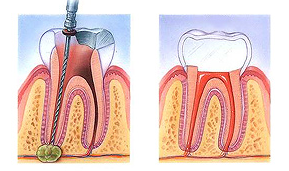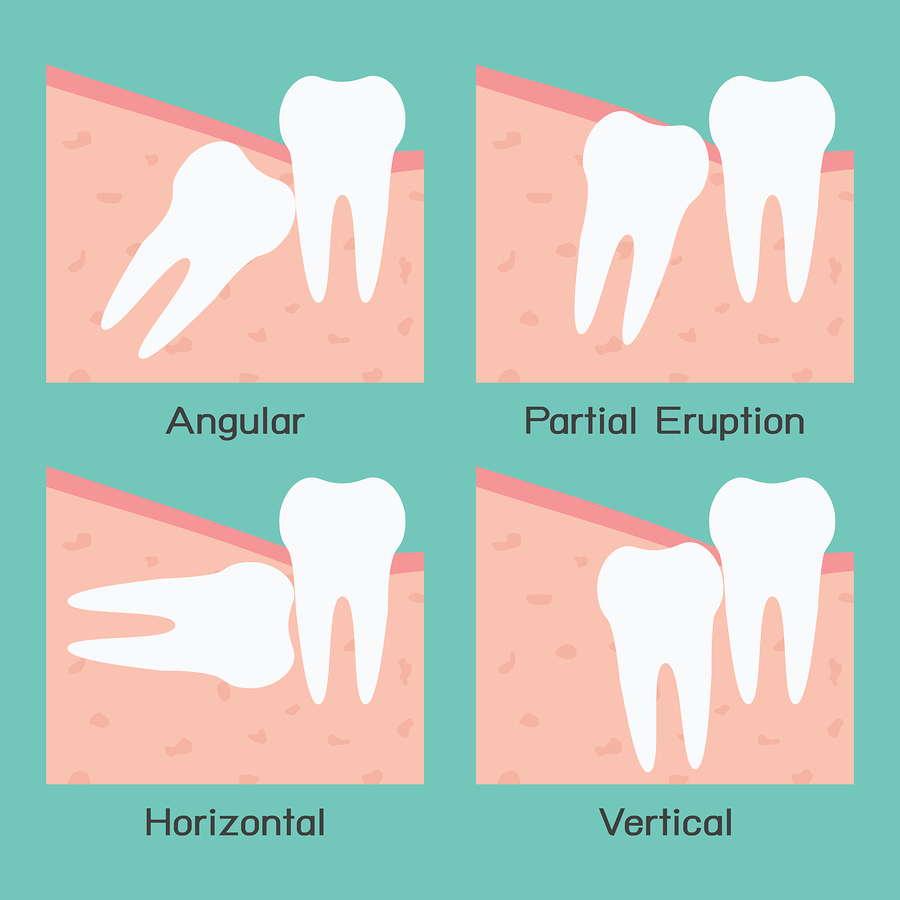Specialty Services in Park City, UT
Why race across town to dentists you don’t know? We provide comprehensive, specialized dental care in one familiar place.
In the past, if you had a tooth with a diseased nerve, you’d probably lose that tooth. Now, with “root canal therapy,” your tooth can be saved. When a tooth is cracked or has a deep cavity, bacteria can enter the pulp tissue and germs can cause an infection inside the tooth. If left untreated, an abscess may form. If the infected tissue is not removed, pain and swelling can result. This can injure your jawbones and be harmful to your overall health.
Root canal therapy involves one to three visits. During treatment, your general dentist or endodontist removes the affected tissue. Next, the interior of the tooth will be cleaned and sealed. Finally, the tooth is filled with a dental composite. If your tooth has extensive decay, your dentist may suggest placing a crown to strengthen and protect the tooth from breaking. As long as you continue to care for your teeth and gums with regular brushing, flossing, and checkups, your restored tooth can last a lifetime.
What is a root canal procedure?
Tooth decay can progress down into the pulp. When this happens, the pulp can become infected. Infection of the pulp can be very painful and can also deteriorate into an abscessed tooth when infection and swelling develops in the tissues around or beneath the tooth. When the pulp becomes infected or the tooth becomes abscessed, it is necessary to perform a root canal.
Why do I feel pain?
When the pulp becomes infected due to a deep cavity or fracture, bacteria can seep in. When there has been an injury due to trauma, the pulp can die. Damaged or dead pulp causes increased blood flow, pressure, and cellular activity. Pain in the tooth is commonly felt when biting down or chewing, and eating or drinking hot and/or cold foods and beverages.
Why do I need root canal therapy?
The tooth will not heal by itself. Without treatment, the infection will spread. The bone around the tooth will begin to degenerate, and the tooth may fall out. Pain usually worsens until one is forced to seek emergency dental attention. The only alternative is extraction of the tooth, which can cause the surrounding teeth to shift, resulting in a bad bite. Though an extraction is cheaper, the space left behind will require an implant or a bridge, which can be more expensive than root canal therapy. If you have the choice, it’s always best to keep your original teeth.
What are the risks and complications with root canal therapy?
More than 95 percent of root canal therapies are successful. However, sometimes a case needs to be redone due to diseased canal offshoots that went undetected, or the fracturing of the canal filling. More commonly, a root canal therapy will fail altogether, marked by the return of pain.
What happens after root canal therapy?
Once root canal therapy is completed, the endodontist will refer the patient back to our office for the permanent restoration on the tooth. A temporary filling was placed immediately following the root canal therapy and will need to be replaced with a permanent filling or crown and build up. A crown will be necessary on all posterior teeth to properly protect the root canal- treated tooth from fracturing. Front teeth can typically be restored with a filling, however a crown may be necessary in some cases. Your dentist will determine the best choice for your individual needs.
How long will the restored tooth last?
Your restored tooth could last a lifetime, if you continue to care for your teeth and gums. However, regular checkups are necessary. As long as the root(s) of a treated tooth are nourished by the tissues around it, your tooth will remain healthy.
How does root canal therapy save my tooth?

- An opening is made through the crown of the tooth into the pulp chamber.
- The pulp is removed, and the root canals are cleaned, enlarged and shaped.
- Medications may be put in the pulp chamber and root canal(s) to help get rid of germs and prevent infection.
- A temporary filling will be placed in the crown opening to protect the tooth between dental visits. Your dentist may leave the tooth open for a few days to drain. You might also be given medicine to help control infection that may have spread beyond the tooth.
- The temporary filling is removed and the pulp chamber and root canal(s) are cleaned and filled.
- In the final step, a gold or porcelain crown is usually placed over the tooth.
An infected tooth is a serious condition and must be treated promptly to avoid tooth loss and the spreading of infection to other teeth. If you are concerned about an infected or abscessed tooth, we urge you to contact us promptly.

Your wisdom teeth are the last molars to erupt. It usually happens during the late teens or early twenties. For many young adults, wisdom teeth, or third molars, cause problems either because there is not enough room in the mouth, or they are impacted or misaligned. This can cause serious pain and discomfort. The best solution is for one of our experienced dentists to extract the wisdom teeth in our Park City office.
Need help with wisdom teeth? Here’s what we offer:
- Get a free exam and X-Ray (limited time).
- Get your procedure done all under one roof.
- We are a preferred provider for most dental insurance companies.
Why Would I Need My Wisdom Teeth Removed?
Misaligned wisdom teeth can cause serious dental and health problems. Depending upon their angle and position, they can damage your other teeth, or cause decay when food, debris and plaque become wedged between teeth. They can also damage your jawbone and adjacent nerves. Sometimes the teeth simply do not have enough room to erupt normally and stay trapped within your jawbone or the soft tissue surrounding it. These teeth that can’t erupt normally are said to be impacted.
Wisdom teeth that are partially erupted provide an open doorway for infection causing bacterial growth. You might experience severe pain, swelling and illness from the infection. Partially erupted wisdom teeth are harder to brush and floss. This makes them more likely to become decayed and cause problematic gum disease.
Do I Have Wisdom Teeth?
The best way to find out if your wisdom teeth are growing in normally is to have one of our dentists take a look during your teen years. Here at Mountain High Family Dental, we examine your teeth and use x-rays to determine the position and alignment of your wisdom teeth. It’s a good idea to have your teeth examined before you go away to college or on a long mission of some kind. Our dentists can help you avoid future problems by extracting problematic wisdom teeth before they can become painful.
When Should I Get My Wisdom Teeth Examined?
The mid to late teen years is the best time to have this procedure performed because the wisdom teeth are easier to extract and you will need less time for recovery.
Why Go To Mountain High Family Dental For Wisdom Teeth Extraction?
Mountain High Family Dental offers fantastic family dental care and are also experts at removing wisdom teeth. Having the same place handle both offers multiple benefits. One of the biggest benefits is that we can monitor the teeth during each visit to make sure they have to be extracted. You will also get the extra comfort of having the procedure done with a dentist that you are comfortable and familiar with already. Plus we are experienced and professional.
What Do I Need to Know About Wisdom Teeth Recovery?
The recovery time following wisdom teeth extraction varies for each person. Some people are up and going that same day while others need more time to get back to their daily routine. For most people, it takes two or three days for recovery. The primary part of recovery is to ensure that the gums remain controlled and to make sure the bleeding is limited. It’s extremely important to make sure to follow the doctor’s advice for recovery.
Are there any tricks to speeding up the recovery process?
There are few ways to make sure that the recovery process is a quick as possible. As you are resting, don’t lie flat. Keeping the head elevated will help limit the bleeding. Make sure to eat soft foods during the first few days because anything hard can puncture the opening the teeth left. Also, avoid a lot of dairy products since they can cause bacteria to get into open wounds. When drinking avoid sucking on straws. The sucking motion can also cause the reopening of the gums. Following these tips combined with regular icing should make recovery as minimal as possible.
